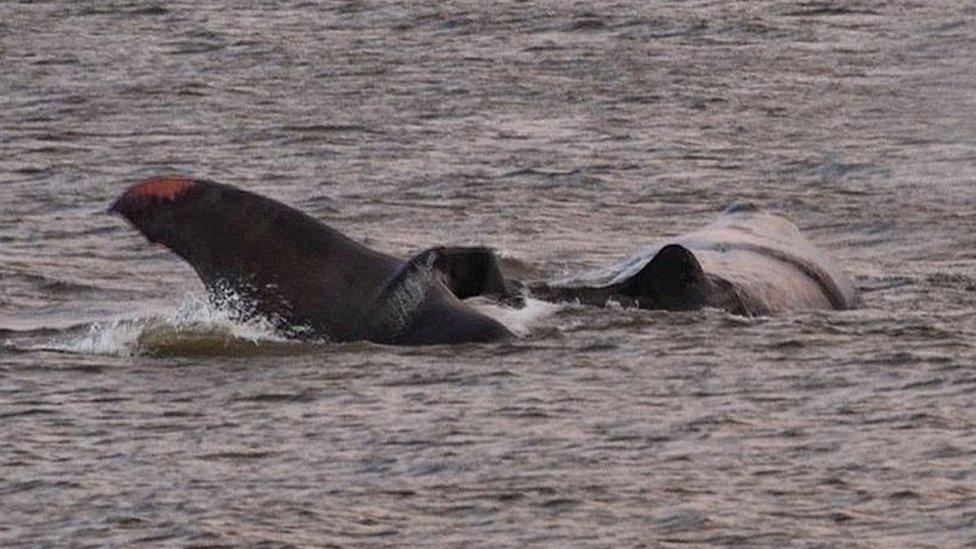Sperm whale's death after Hunstanton stranding 'best for its welfare'
- Published
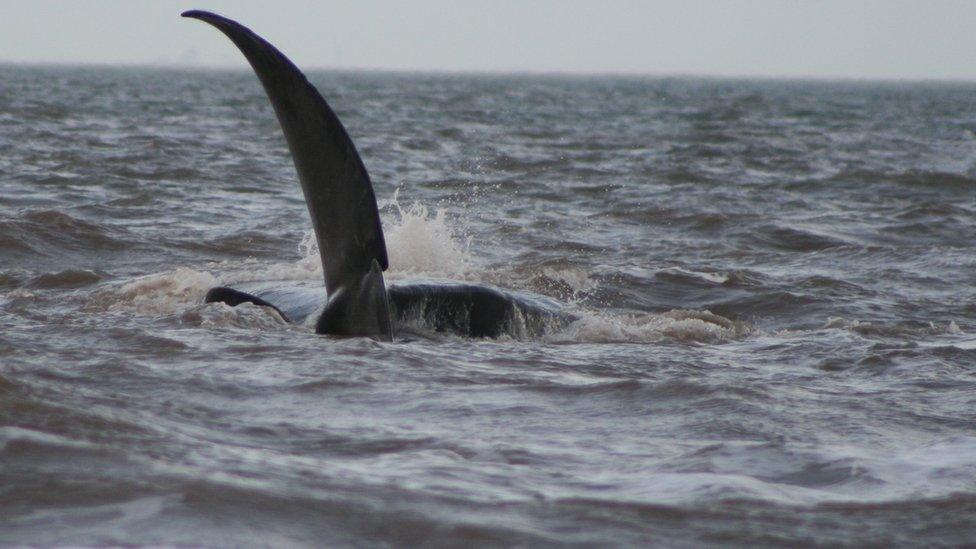
Rescuers hoped the whale would refloat when the tide came it, but it died on Thursday night
The death of a whale that became stranded on a Norfolk beach was "probably the best outcome" for the creature's welfare, an expert has said.
The sperm whale was found at about 07:30 GMT at Hunstanton on Thursday. Rescuers kept the bull comfortable and hoped it would refloat when the tide came in, but it died at about 20:00.
Scientist Rob Deaville said it had "died fairly quickly" and there would have been little chance of saving it.
His team examined the whale earlier.
Samples taken from the carcass will now be taken to a laboratory for testing.
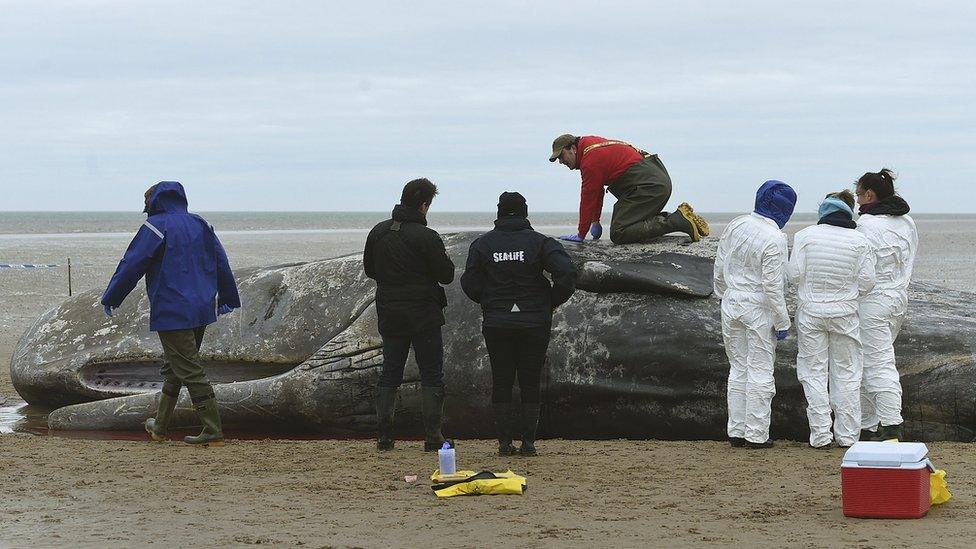
A team of scientists took samples from the whale earlier
It is the 30th sperm whale to have died this year after becoming stranded on beaches in northern Europe and the east coast of England.
Read more on this as it happens
They are thought to have all been from the same bachelor pod.
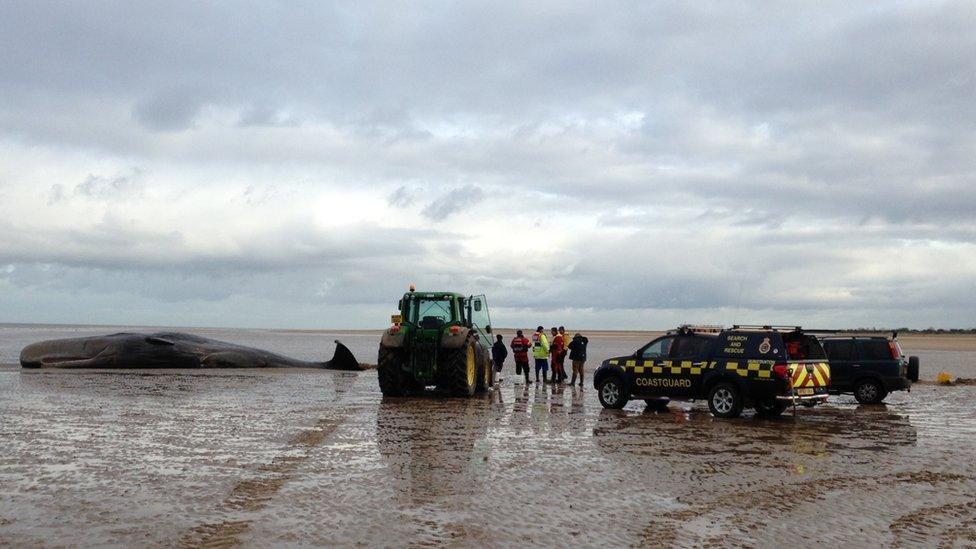
The UK Coastguard was alerted to the beached whale just after 07:30 GMT on Thursday
Marine conservationists said it was possible the male whales, which normally live off the west coast of Norway, could have taken a wrong turn into the North Sea, while heading south to find females or been lured by food.
'Emotional impact'
Mr Deaville, from the Cetacean Strandings Investigation Programme - which examines all whale, dolphin and porpoise strandings in the UK - took samples from the Hunstanton earlier.
Beached whale: How the story unfolded
He said it could takes months to "try and work out why these whales have come into the North Sea in the first place".
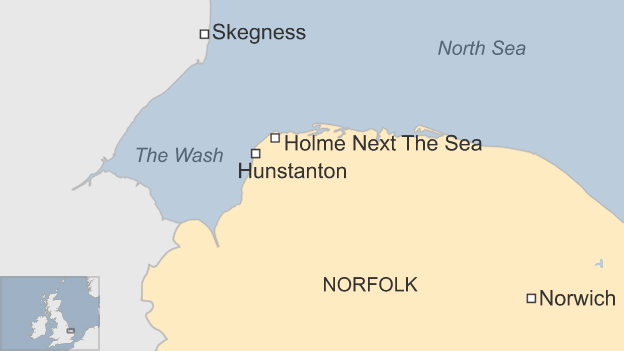
The second sperm whale to be washed up in Norfolk was beached between Hunstanton and Holme
"There are many possible reasons and we're keeping a very open mind about the whole investigation."

Expert Rob Deaville on why the whales were in the North Sea

"This is the question everyone is asking."
But Mr Deaville, who has examined all six sperm whales that washed up on the east coast, says the answer may never be known.
"We'll be working very closely with our German, Dutch and French colleagues, gathering data about what might have been going on in the north Atlantic to potentially - potentially - bring them into the North Sea."
There are currently two schools of thought, he says:
Either these are all part of one larger group of male sperm whales that all came into the North Sea at the same time
Or, there have been successive re-entries into the North Sea of different groups of sperm whales
The second theory is "more worrying because that would suggest there's a systemic problem out there in the north Atlantic," Mr Deaville says.
"If that's the case this isn't the end of what we might see.
"Potentially there'll be more coming in, and that is more concerning. I hope that isn't the case.
"In a way the first is the better outcome because that would suggest there's a finite number of whales in the North Sea."

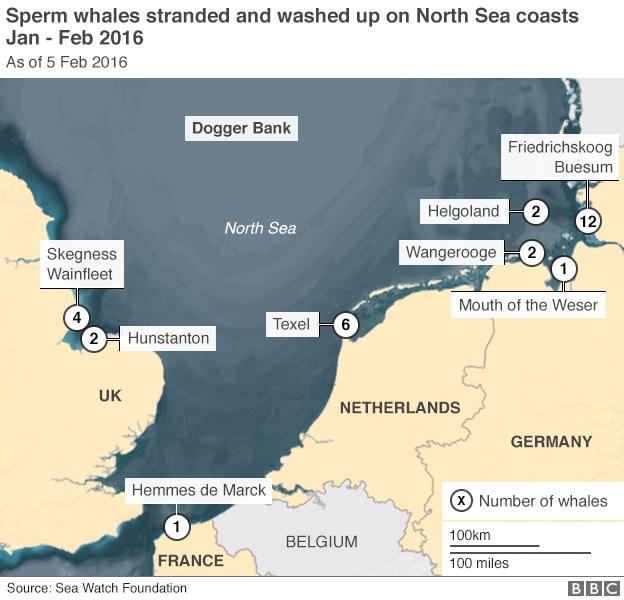
Mr Deaville, who arrived at the beach between Old Hunstanton and Holme-next-the-Sea moments after the whale died, said seeing the 14m-long (46ft) bull had "quite an emotional impact" on him.
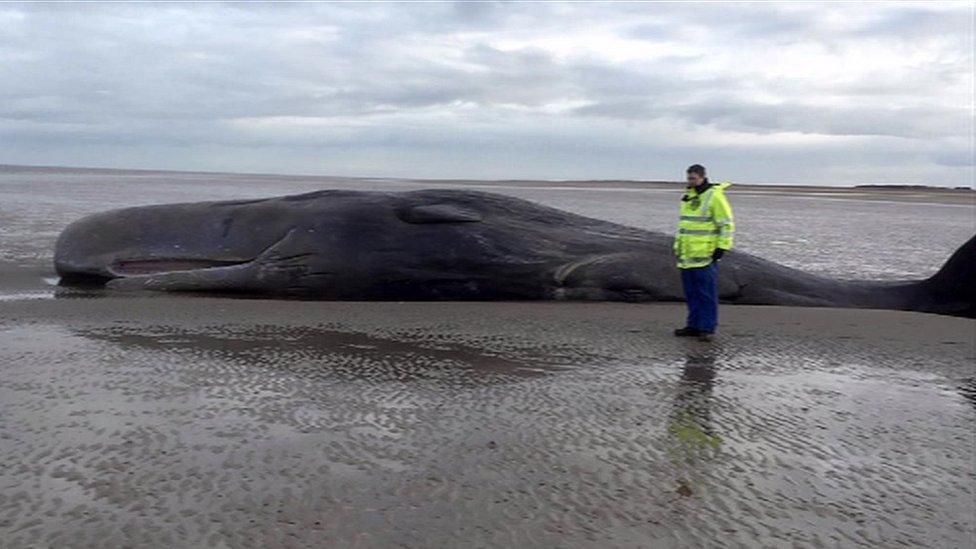
The Maritime and Coastguard Agency asked people to keep at a safe distance from the whale
"This dim shape appeared out of the gloom. You got closer and closer and there was this whale, lying on its side on the sand... it had been alive just an hour earlier."
Asked if the whale had suffered, he said: "No doubt it probably was suffering on shore, but it was probably very compromised by being stranded for such a long time.
"There would be no chance of being refloated or rescued, which is what a lot of people hoped would happen - and it wouldn't have been a good outcome here.
"So probably the best outcome in terms of the welfare of the whale is that it died fairly quickly."
Why do whales get stranded?
- Published4 February 2016

- Published4 February 2016
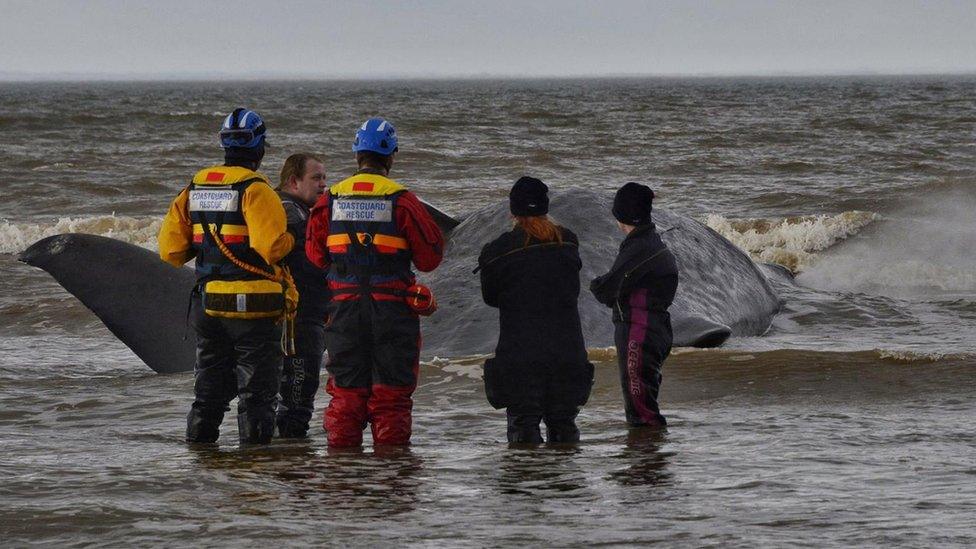
- Published3 February 2016
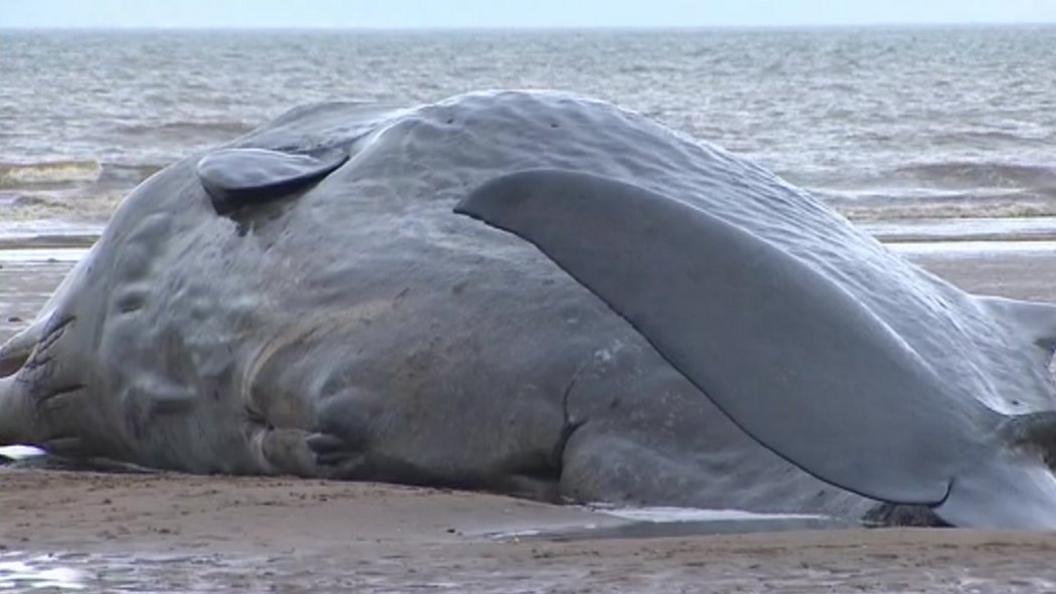
- Published2 February 2016
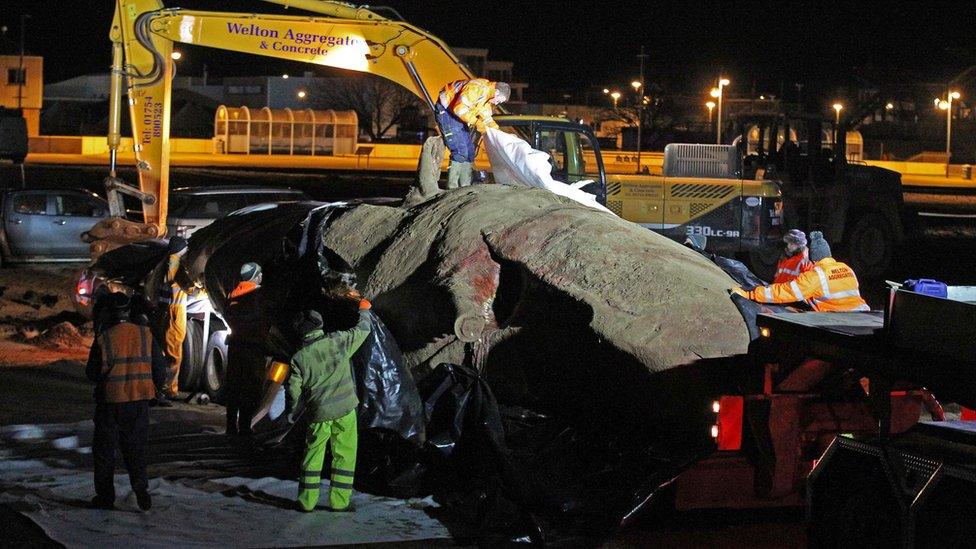
- Published26 January 2016
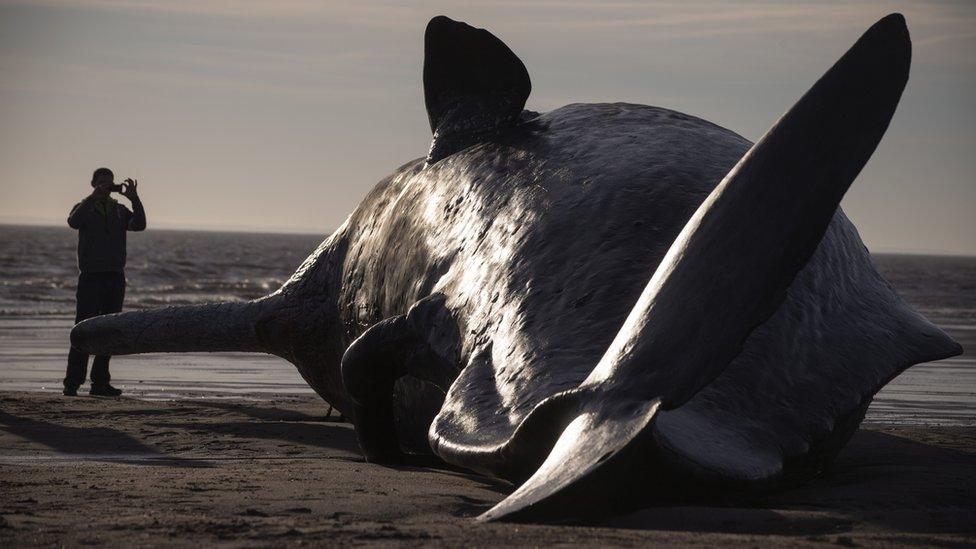
- Published25 January 2016
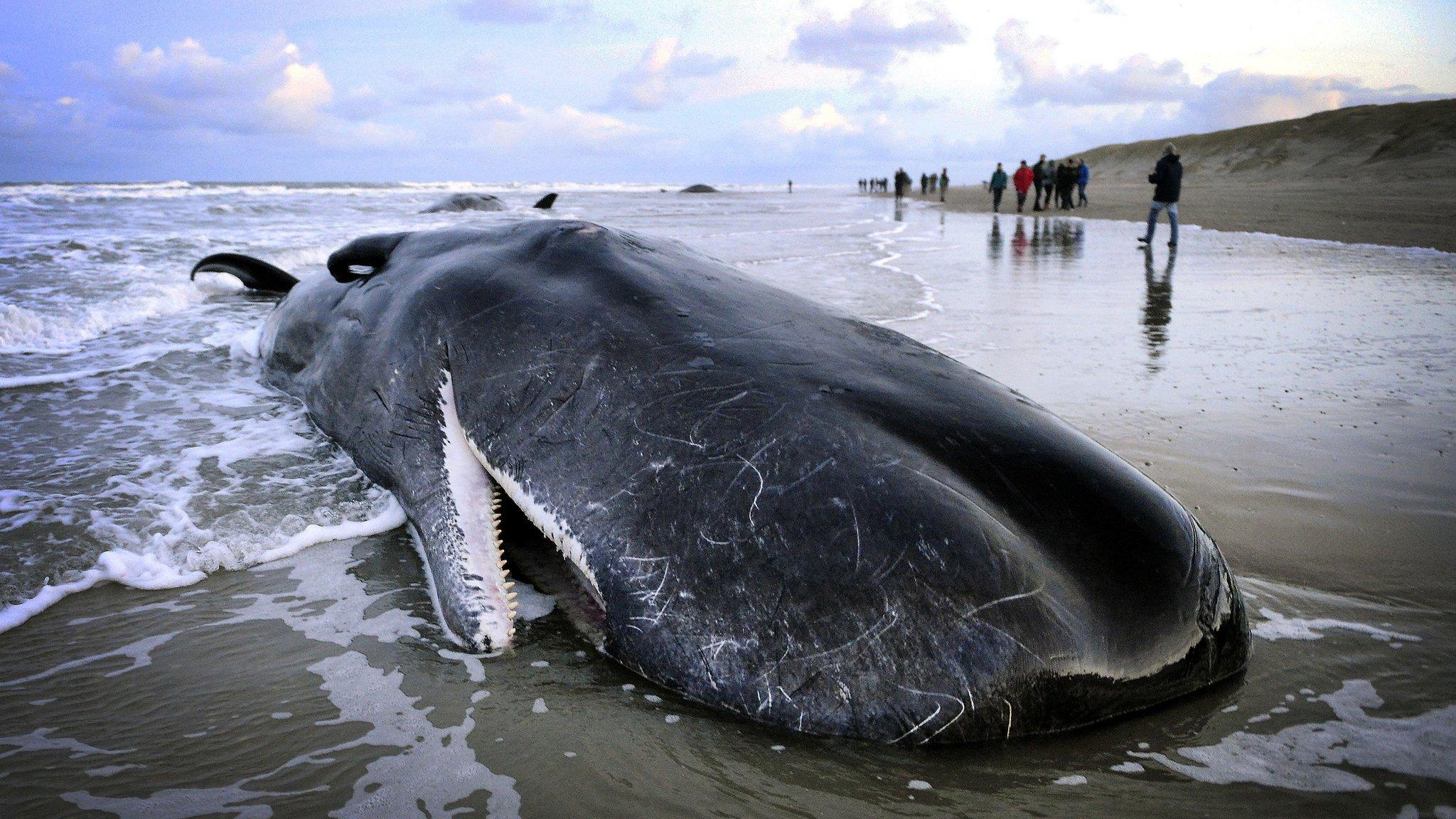
- Published25 January 2016
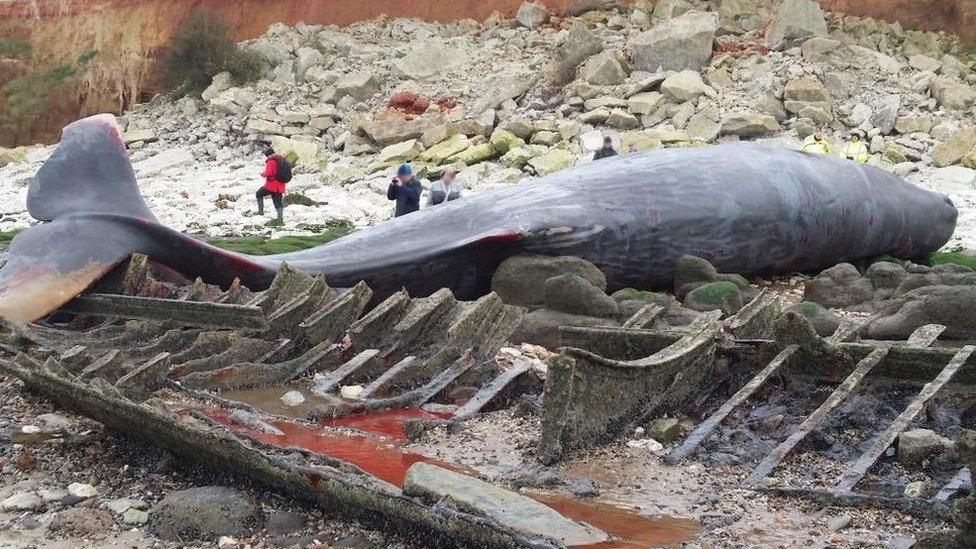
- Published25 January 2016
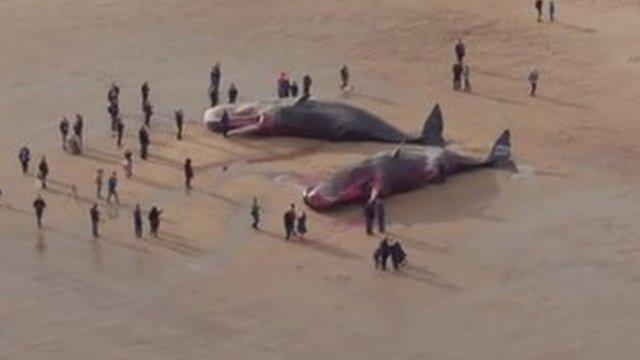
- Published22 January 2016
